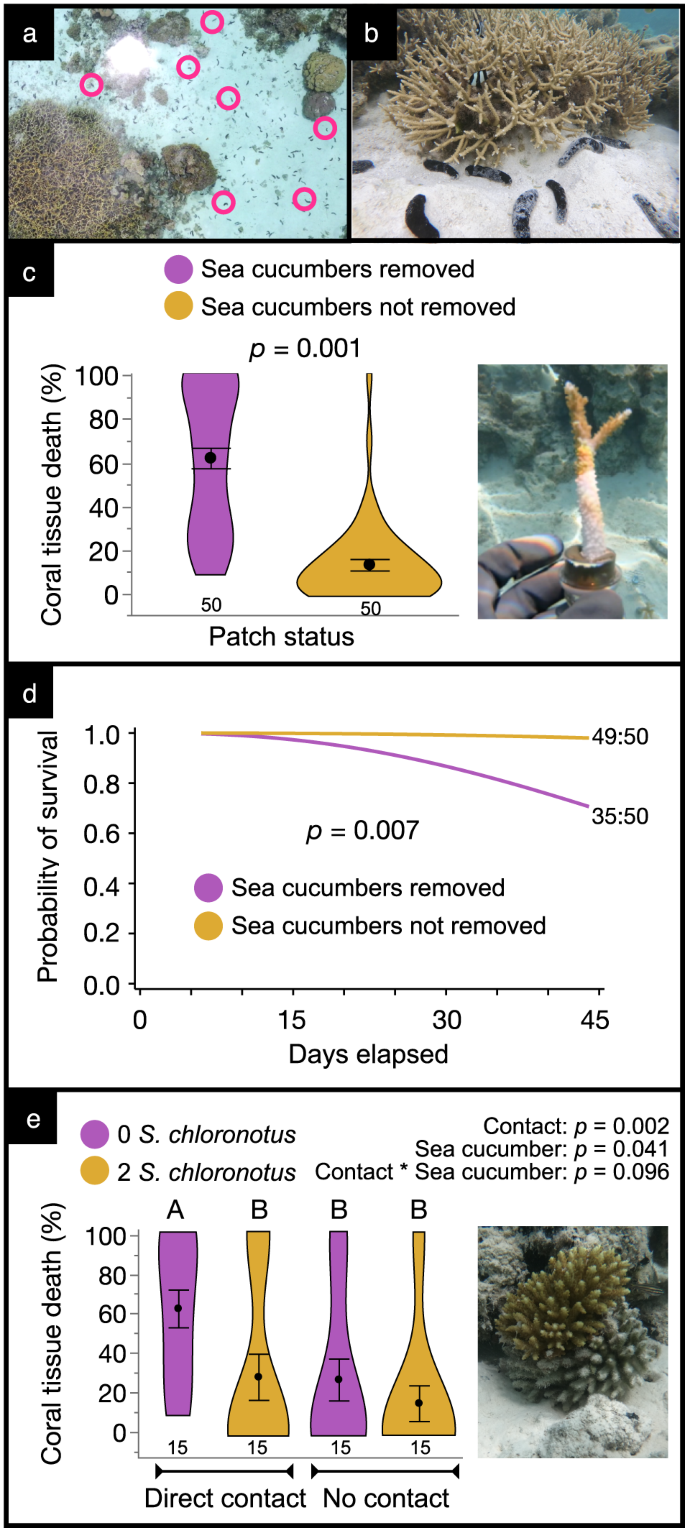2024-02-26 ジョージア工科大学
◆ジョージア工科大学のマーク・ヘイ教授らの研究では、過去に豊富だったと思われる海ナマコの存在がサンゴの健康に重要な役割を果たしていたことが明らかになった。海ナマコは海底の異物を食べることでサンゴの病気を抑制し、サンゴの状態を健康に保っていたことが実験で示された。この発見は、海洋生態系の保護と回復に向けた取り組みを促進し、人々の生活にも良い影響を与える可能性がある。
<関連情報>
サンゴ礁から解食動物のナマコを取り除くとサンゴの病気が増える Removal of detritivore sea cucumbers from reefs increases coral disease
Cody S. Clements,Zoe A. Pratte,Frank J. Stewart & Mark E. Hay
Nature Communications Published:26 February 2024
DOI:https://doi.org/10.1038/s41467-024-45730-0

Abstract
Coral reefs are in global decline with coral diseases playing a significant role. This is especially true for Acroporid corals that represent ~25% of all Pacific coral species and generate much of the topographic complexity supporting reef biodiversity. Coral diseases are commonly sediment-associated and could be exacerbated by overharvest of sea cucumber detritivores that clean reef sediments and may suppress microbial pathogens as they feed. Here we show, via field manipulations in both French Polynesia and Palmyra Atoll, that historically overharvested sea cucumbers strongly suppress disease among corals in contact with benthic sediments. Sea cucumber removal increased tissue mortality of Acropora pulchra by ~370% and colony mortality by ~1500%. Additionally, farmerfish that kill Acropora pulchra bases to culture their algal gardens further suppress disease by separating corals from contact with the disease-causing sediment—functioning as mutualists rather than parasites despite killing coral bases. Historic overharvesting of sea cucumbers increases coral disease and threatens the persistence of tropical reefs. Enhancing sea cucumbers may enhance reef resilience by suppressing disease.


